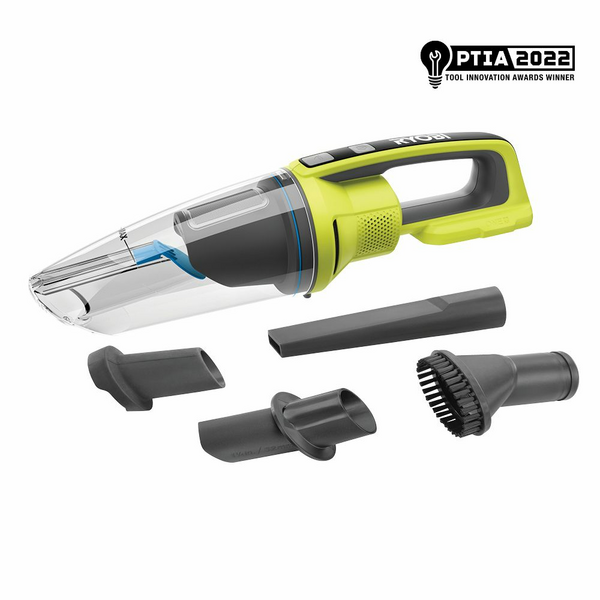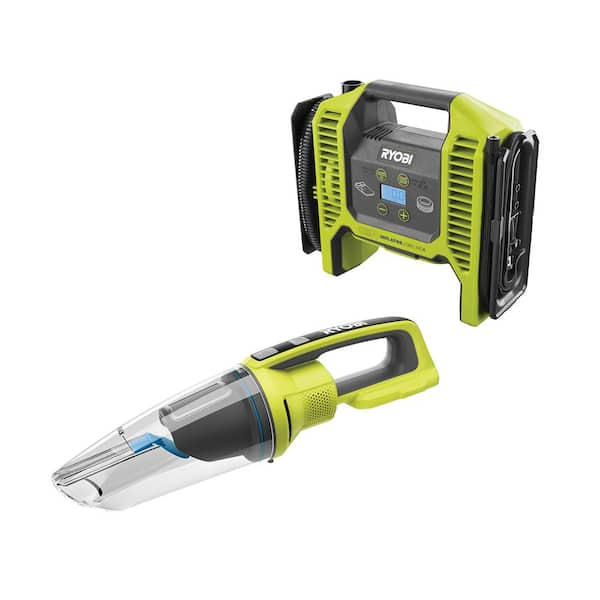When it comes to using power tools, it’s important to know their limits and how to keep them in tip-top shape. So, can Ryobi tools get wet? Let’s find out!
We all know that accidents happen, and sometimes our tools may end up encountering moisture. But it’s crucial to understand whether Ryobi tools are built to withstand wet conditions or if they need extra care.
In this article, I’ll break down the answer, providing you with the information you need to keep your Ryobi tools running smoothly and safely. So, let’s dive in and discover if Ryobi tools can handle a splash or two!

Can Ryobi Tools Get Wet? Exploring the Water Resistance of Ryobi Tools
Ryobi tools are known for their durability and versatility, but many people wonder if they can withstand exposure to water. Whether you’re a professional tradesperson or a DIY enthusiast, it’s important to understand the water resistance of your tools to ensure their longevity and safety. In this article, we will delve into the topic of whether Ryobi tools can get wet and provide you with all the information you need to make informed decisions.
The Water Resistance of Ryobi Tools
Ryobi offers a wide range of tools, including drills, saws, and power tools, and their water resistance can vary depending on the specific model. Generally, Ryobi tools are designed to withstand limited exposure to water, such as light rain or accidental spills. However, it is essential to note that most Ryobi tools are not completely waterproof.
Ryobi tools typically have some level of water resistance due to features such as sealed housings and protective coatings. These design elements help to prevent water from penetrating the internal components of the tools and causing damage. However, it is crucial to follow the manufacturer’s recommendations and guidelines for each tool to ensure their safe operation.
Know Your Ryobi Tool’s IP Rating
To determine the water resistance of a particular Ryobi tool, it is important to look at its IP (Ingress Protection) rating. The IP rating is a standardized system that indicates the level of protection against solid particles and moisture. It consists of two numbers: the first indicating the level of protection against solid particles, and the second indicating the level of protection against liquids.
For example, an IP rating of IP54 means the tool is protected against dust and limited water spray from any direction. On the other hand, an IP rating of IP68 indicates that the tool is dustproof and can withstand continuous immersion in water beyond one meter. It is crucial to consult the user manual or check the packaging for the IP rating of your particular Ryobi tool to understand its water resistance capabilities.
Taking Precautions for Water Exposure
While Ryobi tools are designed to provide some level of water resistance, it is still important to take precautions to protect them from excessive moisture. Here are some tips to ensure the safety and longevity of your Ryobi tools when working in wet conditions:
1. Avoid Direct Exposure: Whenever possible, try to protect your Ryobi tools from direct contact with water. Use tarps or protective covers to shield them from rain or other sources of moisture.
2. Dry Tools Thoroughly: If your Ryobi tool does get wet, make sure to dry it thoroughly before using or storing it. Use a soft cloth to remove any moisture from the surface and ensure that there is no water inside the tool.
3. Store in Dry Environment: When not in use, store your Ryobi tools in a dry environment. Avoid damp basements or sheds with high humidity levels, as moisture can gradually seep into the tools and cause damage over time.
4. Regular Maintenance: Perform regular maintenance on your Ryobi tools to keep them in optimal condition. This includes cleaning, inspecting for any signs of water damage, and lubricating moving parts as recommended by the manufacturer.
While Ryobi tools have some level of water resistance, it is important to exercise caution and avoid exposing them to excessive moisture whenever possible. By understanding the water resistance capabilities of your Ryobi tools and taking the necessary precautions, you can ensure their longevity and reliable performance.
Benefits of Water-resistant Ryobi Tools
1. Increased Durability
One of the key benefits of water-resistant Ryobi tools is their increased durability. These tools are designed to withstand exposure to water and other environmental factors, making them more resistant to wear and tear. By investing in water-resistant Ryobi tools, you can rely on their ability to withstand challenging working conditions and maintain their performance over time.
2. Versatility in Work Environment
Water-resistant Ryobi tools offer greater versatility in various work environments. Whether you’re working in a construction site, a workshop, or even outdoors, these tools can handle exposure to water without compromising their functionality. This versatility allows you to use your Ryobi tools in a wider range of projects and environments.
3. Peace of Mind
Having water-resistant Ryobi tools gives you peace of mind, especially when working in wet conditions or areas where water exposure is likely. You can focus on getting the job done without constantly worrying about damaging your tools. The confidence and peace of mind that come with using water-resistant Ryobi tools can significantly enhance your work experience.
Cleaning and Maintenance Tips for Ryobi Tools
Ryobi tools, like any other tools, require regular cleaning and maintenance to ensure optimal performance and longevity. Here are some essential cleaning and maintenance tips for your Ryobi tools:
1. Basic Cleaning
After each use, wipe your Ryobi tools with a soft cloth to remove any debris, dust, or moisture. Pay extra attention to any crevices or moving parts that might accumulate dirt or debris. Use a brush or compressed air to remove stubborn dirt.
2. Lubrication
Regularly lubricate the moving parts of your Ryobi tools to reduce friction and ensure smooth operation. Consult the user manual or manufacturer’s recommendations to determine the appropriate lubrication method and products for your specific tools.
3. Inspection
Regularly inspect your Ryobi tools for any signs of wear, damage, or water ingress. Check the cords, switches, and connections for any fraying or damage. If you notice any issues, discontinue use and have the tool inspected or repaired by a professional.
4. Storage
When not in use, store your Ryobi tools in a dry and secure location. Use protective cases or bags to prevent dust accumulation and potential damage. Avoid storing tools in extreme temperatures or high humidity areas, as these conditions can negatively impact their performance and lifespan.
Conclusion:
In conclusion, Ryobi tools can withstand limited exposure to water, thanks to their water resistance features such as sealed housings and protective coatings. However, it is important to note that the degree of water resistance can vary depending on the specific model and its IP rating. Taking precautions and following the manufacturer’s recommendations for each tool are crucial for the safe and long-lasting operation of Ryobi tools. Remember to always consult the user manual and be mindful of excessive water exposure to ensure the longevity and reliability of your Ryobi tools.
Key Takeaways: Can Ryobi Tools Get Wet?
- Ryobi tools are not designed to be fully submerged or exposed to heavy rain.
- Light rain or splashes should not damage Ryobi tools if they are promptly dried.
- Water can cause rust and electrical damage to the tools, so it’s best to avoid getting them wet.
- Using Ryobi tools in wet conditions may void the warranty, so check the manufacturer’s recommendations.
- It’s important to store Ryobi tools in a dry place to prevent moisture-related issues.
Frequently Asked Questions
Welcome to our FAQs on the topic of Ryobi tools and their resistance to water. Here, we’ll address some common concerns and provide you with the information you need to keep your tools in top condition. Read on for answers to your questions!
1. Can Ryobi tools get wet in the rain?
While Ryobi tools are designed for outdoor use, it is not recommended to expose them directly to rain. Most Ryobi tools are not fully waterproof, and water damage can affect their performance and longevity. However, if your tools do get wet, it’s important to dry them thoroughly before use to prevent any potential damage.
If you’re working outdoors and it starts to rain, it’s best to seek shelter or cover your tools with a water-resistant tarp or protective covering. This will help to prevent direct exposure to water and minimize the risk of damage to your Ryobi tools.
2. Are Ryobi tools waterproof?
Most Ryobi tools are not waterproof. While they are designed to withstand some level of moisture, such as light splashes or damp environments, they are not meant to be submerged in water or fully exposed to heavy rain or other wet conditions. Waterproofing would require additional design elements and materials, which could increase the cost and weight of the tools.
It’s important to always read the user manuals for your specific Ryobi tools to understand their moisture resistance levels. If you need to use your tools in wet or damp conditions, consider using additional precautions, such as wearing appropriate protective gear and ensuring a dry working environment to minimize the risk of damage.
3. How should I clean my Ryobi tools if they get dirty or dusty?
When it comes to cleaning your Ryobi tools, it’s important to follow the manufacturer’s instructions provided in the user manual. In general, you can use a clean, damp cloth to wipe away dirt, dust, or other debris from the surface of the tools. Avoid using harsh chemicals or abrasive materials that could potentially damage the tool’s finish or functionality.
If you’re dealing with more stubborn dirt or grime, you may need to use a mild soap solution or a non-abrasive cleaner specifically recommended by Ryobi. Be sure to rinse the tools thoroughly and dry them before storing or using them again to prevent any moisture-related issues.
4. Can Ryobi tools be used around water or in wet environments?
While some Ryobi tools may have limited water resistance, it is generally not advisable to use them around water or in wet environments. Water can potentially damage the internal components of the tools and compromise their performance and safety.
If you need to work in wet environments or around water, it’s essential to use tools specifically designed for those conditions, such as waterproof or water-resistant tools. Always check the product specifications and user manuals to ensure that a Ryobi tool is suitable for use in the intended environment before exposing it to water.
5. How can I protect my Ryobi tools from water damage?
To protect your Ryobi tools from water damage, it’s important to take preventative measures. Store your tools in a dry and secure location when not in use, away from potential water sources. Consider using a toolbox or a storage container that provides additional protection against moisture.
If you anticipate working in wet conditions or near water, use appropriate protective measures such as waterproof covers or tool bags. These can help keep your tools dry and shielded from water exposure. Remember that prevention is key when it comes to protecting your Ryobi tools from water damage.

Rescuing Rained-On Power Tools
Summary
So, can Ryobi tools get wet? The answer is yes, but with caution. While some Ryobi tools are designed to be water-resistant, it’s still important to protect them from prolonged exposure to water. Avoid using them in heavy rain, and always dry them thoroughly after any contact with water. Remember, taking care of your tools will make them last longer and keep them working effectively for all your projects.
The post Can Ryobi Tools Get Wet? appeared first on The Habit of Woodworking.
source https://thehabitofwoodworking.com/2024/can-ryobi-tools-get-wet/

No comments:
Post a Comment